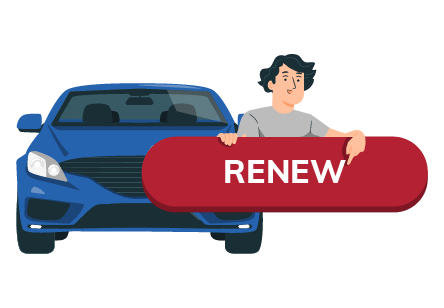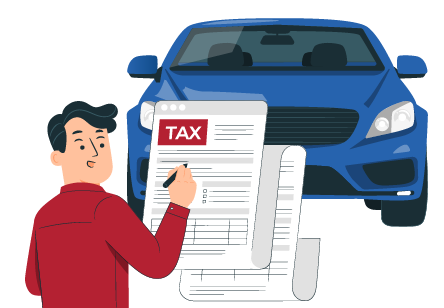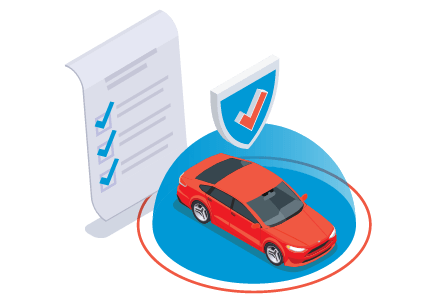Car insurance renewals often surprise vehicle owners with higher premiums even when they have a clean driving record. So we wonder: Do rates increase yearly, or are auto insurers just picking on us?
Car insurance usually renews automatically, especially if you’re on auto-pay. Insurance companies will send you a renewal notice in advance with the new premium and coverage details. But renewal doesn’t mean price stability. Insurance premiums can increase due to industry-wide cost trends, higher claims, or updated risk assessments – even if nothing has changed with your driving habits.
Premiums increase due to market dynamics and insurance company-specific adjustments. Although it may seem automatic, broader economic and risk-related factors usually drive these increases.
To avoid overpaying, you should review your renewal notice, compare quotes from other providers, and adjust your coverage if needed. Traveling around can help you get a better rate and a more suitable auto policy.
How Does Car Insurance Renewal Work?
Car insurance renewal is a process that policyholders go through at the end of a set policy period—usually six or twelve months. That’s when insurance providers give customers a heads up—usually about a month before the policy expires—that the renewal is coming. They detail any changes to the insurance premium, coverage limits, or policy terms. That advance notice gives policyholders time to review the updated policy documents, shop around, and decide whether to stick with their current insurance company or switch to a new one.
Many insurers make the renewal process as smooth as possible through automatic renewal. If you’re enrolled in an autopay system, the renewal happens seamlessly behind the scenes. You need to update your insurance documents and proof of insurance. But it’s still worth actively checking your renewal date and the premium or coverage changes. If you’re unsure about anything—or can’t see your renewal date—it’s a good idea to contact your insurance company immediately to clear things up. That way, you can avoid any gaps in coverage—and the financial and legal risks that come with them—if you miss the renewal deadline.
What Happens If I Don’t Renew My Auto Insurance Policy?
Failing to renew your auto insurance policy can have severe consequences. Many insurance companies have an automatic renewal system, so your coverage keeps going as long as you make those premium payments. But if your insurer doesn’t offer that, cancels your policy, or you miss a payment, you risk losing that coverage.
That lapse in coverage can expose you to higher insurance rates when you reinstate or buy a new policy. And if you’re involved in an accident during that time—you’ll be covering the costs out of pocket. That can be financially devastating. Some insurers might let you reinstate your policy, but they often slap on penalties or extra charges. If that’s not an option, you’ll need to get a new policy right away to get back under the umbrella of protection and meet the legal requirements. Keeping an eye on your policy status and renewing on time can save you much hassle.
How Does Automatic Car Insurance Renewal Benefit Insurance Companies?
Automatic car insurance policy renewal is convenient but can cost policyholders more. Many drivers value the ease of letting their policy renew without intervention and assume their insurance company has their best interests at heart. But that’s not always the case.
Insurance companies bank on customers not questioning renewal terms. By relying on policyholders to accept renewal notices without scrutiny, insurers can quietly raise policy premiums, knowing most people will avoid the time-consuming task of comparing options. This strategy works because many drivers will sidestep the effort of shopping the broader market even after they get a formal renewal notice.
This is especially true for long-time policyholders happy with their coverage and service. Surveys show that 42% of US drivers have been with the same insurer for at least 3 years and 6% for over 10 years. Positive customer service experiences, fast claims processing, and user-friendly platforms keep policyholders loyal and from shopping around even after they get a renewal notice.
Established relationships with insurance agents contribute to a sense of trust. Drivers believe their interests are fully protected. While agents are generally helpful, the automatic renewal process may not always be in the policyholder’s best financial interest.
How to Cancel or Switch Car Insurance at Renewal
You do not have to accept higher rates when your car insurance is up for renewal if the price and coverage aren’t worth it. The renewal period is a perfect time to review your coverage and look for car insurance elsewhere.
Some common reasons to switch auto insurance companies are listed below.
- Your premium has increased, and your insurer hasn’t provided a good reason for the rate increase.
- Limited coverage options with your current insurer.
- An improved credit score could get you lower rates from another insurance company.
- Poor customer service or claims handling with your current insurance company.
- There are no available discounts your current insurer can offer you.
Before you switch, try negotiating your rate with your current insurer. Sometimes they offer extra discounts if you ask. If they won’t give you a better rate, get quotes from other insurance providers to see if they offer you better rates or more comprehensive coverage.
When you decide to cancel your policy, make sure you have a new policy lined up first. Cancelling without new coverage in place will give you a coverage gap. This could mean higher premiums or no coverage at all.
To cancel officially, let your insurer know that you do not want to renew. Some insurers will require written notice, while others will let you cancel over the phone or online.
Be sure to ask about any cancellation fees or extra costs for canceling early.
If you are on an automatic payment plan, confirm the cancellation to stop any unwanted charges on your credit card for the next policy period.
What is Car Insurance Cancellation vs. Nonrenewal?
Car insurance can be terminated through cancellation or nonrenewal. While both mean your coverage ends, they are different in timing and reason.
How Does Cancellation Work?
Cancellation can happen at any time during the policy term. Still, generally, insurance companies can’t cancel an active policy after 60 days unless specific severe circumstances apply. These reasons may include:
- Suspension or revocation of your driver’s license
- Nonpayment of premiums
- Misrepresentation or fraudulent information provided to the insurer
- Medical conditions that impair safe driving
If your policy is canceled, you should contact your insurer ASAP to discuss reinstatement, especially if the cancellation was due to a temporary issue like a missed payment within a grace period. However, reinstatement, if allowed, may come with a higher premium. Choose to cancel your policy. You may get a prorated refund for any unused portion of your premium. Still, some companies impose a short-rate cancellation penalty, which reduces your refund.
How Does Nonrenewal Work?
Nonrenewal happens when you or your insurance provider decides not to extend your policy beyond its expiration date. Unlike cancellation, nonrenewal usually occurs at the end of the policy term, with most states requiring insurers to give advance notice and a reason for non-renewal. Common reasons include:
- A history of missed payments and not paying the premium on time
- A DUI or multiple traffic violations
- Frequent or costly insurance claims
- Changes in company policy, such as withdrawing from a geographic area or altering coverage offerings
If you disagree with nonrenewal, you may contact your insurer’s consumer affairs division or your state’s insurance department to ask for clarification or appeal. Suppose nonrenewal is due to a factor outside your control, such as a change in service area. In that case, you are generally entitled to at least 30 days' notice.
What To Do After Cancellation or Nonrenewal of Your Auto Insurance Policy
Whether your policy is canceled or not renewed, you need to act fast to avoid a lapse in coverage. This can result in higher premiums or legal penalties. To maintain continuous coverage:
- Get a new policy effective before or immediately after your existing policy expires.
- Tell your current insurer you don’t want to renew if applicable.
- Get written proof of cancellation or expiration so you don’t get billed or have disputes.
Act fast so you comply with state laws and are protected from accidents.
Can I Renew an Expired Auto Insurance Policy?
Don’t let your car insurance policy lapse; it can make it harder to maintain continuous coverage and may cost you more. But if it does lapse, you may still have options to reinstate coverage depending on your insurance company and state laws.
Most insurance companies have a grace period of 10 to 20 days after the due date to renew your policy without entirely losing coverage. This window lets you catch up on missed payments and avoid a formal lapse. But if the grace period expires and you do nothing, your policy will lapse, exposing you to uninsured risks.
In that case, you can still reinstate your old policy by contacting your insurer directly. Some companies will restore coverage shortly after expiration, but the lapse will be noted on your insurance record. If reinstatement is unavailable or you find better terms elsewhere, you can buy a new policy from another company. Just know that insurers view drivers with coverage gaps as having higher risk, which could mean higher premiums.
How Do You Get the Best Quotes for Car Insurance Renewal?
When you renew your car insurance, getting the most competitive quote can save you a pretty penny on your premium and overall insurance costs. Higher renewal rates are one of the main reasons drivers start looking for alternatives.
Work with an Insurance Broker Who Will Find the Cheapest Car Insurance Quotes
Working with an insurance broker can help you streamline the process to find the cheapest car insurance. They have access to multiple auto insurance carriers, which means they can compare a wider range of options on your behalf. This can result in finding better rates and more tailored coverage without doing all the legwork yourself. Plus, brokers typically work on a commission the insurer pays, so you won’t have to pay them directly for their services.
Other Ways to Lower Your Car Insurance Rates
You can use several different strategies to lower your car insurance rates while still getting the coverage you need.
Lowering your renewal premium is definitely within reach. Some steps to reduce your car insurance rates are listed below.
- Pay your Premium in Full - Paying your premium in full rather than breaking it up into installments can save you money. (And who doesn’t love saving money?)
- Take advantage of discounts - You can also take advantage of available discounts- your insurer might offer multi-policy, safe driver, or loyalty discounts.
- Compare rates from Multiple Companies - Shopping around to compare rates from multiple insurance providers before committing to renewal can also pay off.
- Find an insurer that offers Accident Forgiveness - Some insurers even provide free accident forgiveness, preventing your premium from spiking after your first at-fault accident.
- Raise your Deductible - Choosing a higher deductible can lower your premium. Still, you’ll have to pay more out of pocket to make a claim.
- Remove unneeded coverages - You can adjust your coverage by dropping nonessential or reduced-value coverage, especially if your insured vehicle is older.
- Maintain a Good Credit History - Maintaining a strong credit score helps keep insurance rates low. Many insurers factor your credit report into your insurance premiums.
- Take a Driver Safety Course - Completing a driver safety or defensive driving course can get you a safe driver discount.
- Bundle Multiple Policies - Bundling insurance policies—like auto and home insurance—can unlock additional savings.
- Earn a No Claims Bonus - A no claims bonus (NCB) is another way to get discounted car insurance rates. Insurers reward customers with lower rates by avoiding claims during their previous policy period.
Switch to a Usage-Based Car Insurance Policy
Signing up for a policy that includes telematics to track your good driving habits can lower your rates. Most insurers offer a 10% discount for installing a telematics device in their vehicle.
Combining these proactive premium-reduction strategies with professional advice from an insurance broker gives you comprehensive coverage at a competitive price.
Why Did My Car Insurance Rates Go Up at Renewal Time?
It’s not uncommon for drivers to see their car insurance premiums go up when they get their renewal notice. According to the US Bureau of Labor Statistics, auto insurance rates have increased recently. Several personal and market-related factors contribute to these increases, and understanding them can help you better navigate your renewal.
Personal Factors That Can Raise Your Rate
Rate changes often come from changes in your driving profile or policy details listed below.
- Traffic tickets, including speeding tickets and other infractions.
- At-fault accidents or recent claims.
- Adding drivers or vehicles to your policy.
- Age changes, insurance rates usually are higher for senior drivers.
- Moving to a different ZIP code, rates vary by your geographical location. They are based on factors like accident frequency and crime rates in the area.
- Increased driving, higher annual mileage increases your chance of an accident.
- Marital status, married drivers are seen as more responsible and get lower rates. Getting divorced will increase your rates.
- Buying a new vehicle with higher repair or replacement costs.
- Adding young or new drivers to your policy.
- Loss of prior discounts due to changes in the drivers eligibility.
- A lapse in insurance coverage can label you as a higher-risk driver.
Changing Insurance Market and Industry Trends
Even if you have a clean driving record and don’t make changes to your policy, external factors can still cause your insurance rates to go up. Insurers update premiums based on broader trends like inflation, repair costs, and higher claim frequencies in your area.
What Should I Do If My Auto Insurance Rate Goes Up?
If you see an unexpected rate increase, reach out to your insurance agent and ask for an explanation for the rate increase. The agent may find other discounts you are eligible for or recommend policy changes to lower your rates. The renewal period is also a good time to shop around with other insurers and compare quotes. You may find lower rates while still getting the same coverage you need.
Car Insurance Renewal Frequently Asked Questions
Does my car insurance policy renew automatically?
Most insurers auto-renew car insurance so customers have continued coverage. However, check with your provider first to see if any extra steps are required, like updating payment methods or personal info.
What do I need to renew my car insurance policy?
To ensure accurate and timely renewal, you’ll typically need your current policy details, current vehicle registration, valid driver’s license, and possibly updated personal or payment information.
Is it easy to renew car insurance?
Yes, the car insurance renewal process is generally simple and convenient as most insurers offer multiple options: online portals, mobile apps, phone assistance, or in-office visits.
Will my premium change at renewal time?
Premiums may change at renewal based on your claims history, driving record, coverage changes, or market conditions. Personal factors like moving to a new zip code or marital status can also change your premium.
Why might my renewal premium be higher even if I had no claims?
Renewal premiums can increase even with no new claims due to external factors like repair costs, inflation, insurer pricing changes, or a higher crime rate in your neighborhood.
Can I switch to a different insurance company at renewal time?
Yes, you can switch insurers at renewal, and comparing quotes is highly recommended to find better rates, coverage, or discounts that suit you better.
Is there a grace period after my policy expires?
Most insurers have a short grace period after policy expiration (a few days to a couple of weeks), but this varies, so check with your insurer to avoid coverage lapse.
What happens if I renew my insurance policy late?
Renewing your insurance policy late means a coverage lapse. You can expect higher premiums due to your perceived risk, fines or legal penalties, and difficulty getting competitive rates from other insurers.
What if I don’t renew my policy and drive uninsured?
Driving without car insurance is not only illegal but has several consequences. You can face severe legal penalties, large fines, driver’s license suspension, vehicle impoundment, and financial responsibility for damages and medical expenses in an at-fault accident.






